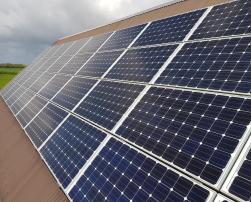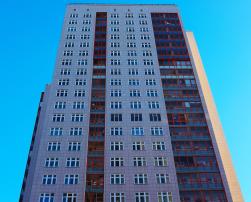
A study explores the benefits of incorporating ground olive stones into mortar bricks to enhance thermal insulation, reduce energy consumption, and lower environmental impacts in building construction.

A study explores the benefits of incorporating ground olive stones into mortar bricks to enhance thermal insulation, reduce energy consumption, and lower environmental impacts in building construction.
Indoor photovoltaics: towards an energy- and climate-neutral world

The construction and operation of buildings contribute significantly to global carbon emissions, requiring urgent adoption of efficiency measures, renewable energy, and sustainable materials to achieve net-zero emissions by 2050.

The new Politecnico di Milano's track in the Building Engineering for Sustainability programme focuses on innovative building envelopes for energy efficiency and sustainability, aligning with global climate goals.

Solar panels installed at 'Charles Telford Erickson' high school in Kavaja, funded by EU-UNDP initiatives, significantly reduce energy costs and CO2 emissions, exemplifying sustainable development efforts in Albania.

A publication by BPIE provides ten recommendations for the European Commission to make buildings more sustainable, energy-efficient, and resilient, enhancing Europe's stability and well-being.

Termite mounds inspire architects to design sustainable, energy-efficient buildings with natural ventilation, local materials, and resilient structures, improving urban living.

This article demonstrates how the extreme weather conditions affect the buildings' performance of two buildings at the Spanish scientific station 'Gabriel de Castilla' in Antarctica.

The Tomorrow.Building World Congress will take place in Barcelona, Spain, from 5 to 7 of November.

The paper evaluates urban interventions in London to mitigate extreme heat, finding that cool roofs are most effective in reducing outdoor air temperatures.